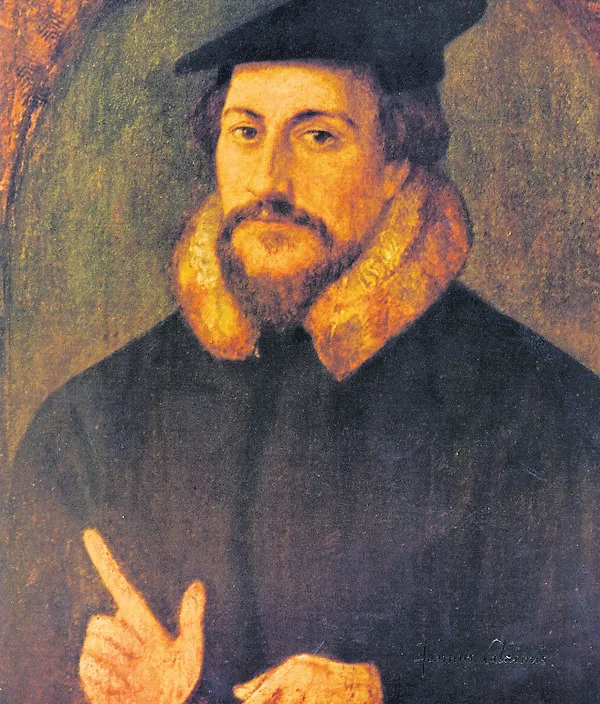To see the heart of the Reformation fleshed out, we can do no better than to look at John Calvin’s ministry as a preacher.
After Calvin came to Geneva in 1536, he looked upon his work in the Swiss city as primarily ‘proclaiming the Word of God’ and ‘instructing believers in wholesome doctrine’. He was, of course, involved in the other aspects of pastoral work, but at the centre of his ministry was preaching the gospel. By this means, Calvin said time and again, God reveals himself in judgment and mercy, turning hearts to obedience, confirming the faith of believers, building up and purifying the church.
Expository
Calvin’s method of preaching was expository. Not for him the single text or isolated passage. Rather, he would preach steadily through book after book of the Bible. On Sundays he always took the New Testament, except for a few Psalms on Sunday afternoons. During the week, it was nearly always the Old Testament. He would begin at the beginning of a book and expound it clause by clause, passage by passage, until he had come to the end. Then he would start on another book. As Calvin scholar T. H. L. Parker once noted: ‘Those in Geneva who listened Sunday after Sunday, day after day, and did not shut their ears, … received a training in Christianity such as had been given to few congregations in Europe since the days of the fathers’.










